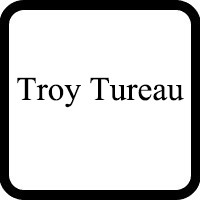Twentynine Palms Credit & Debt Lawyer, California
Sponsored Law Firm
-
 x
x

Click For More Info:
-
Stratton & Green, ALC
3703 Camino Del Rio S Suite 100B San Diego, CA 92108» view mapBankruptcy & Debt Law Exceptional Advocates.
Stratton & Green is proud to serve as a modern advocate, in that it takes an innovative approach by not only litigating cases through trial but whenever possible.
800-803-3091
Not enough matches for Twentynine Palms Credit & Debt lawyer.
Below are all Twentynine Palms Bankruptcy & Debt lawyers.
Troy Anthony Tureau
✓ VERIFIEDImmigration, Trusts, Social Security -- Disability, Dissolution, Wills & Probate
Attorney Tureau is a practicing lawyer in the state of California.
Eric Joseph Guinan
Civil Rights, Contract, Credit & Debt, Personal Injury
Status: In Good Standing Licensed: 30 Years
Joseph Anthony Roman
Employee Rights, Corporate, Credit & Debt
Status: In Good Standing Licensed: 44 Years
John L. Mohr
Landlord-Tenant, Estate, Family Law, Credit & Debt
Status: In Good Standing Licensed: 47 Years
Paula Anne Tyler
Commercial Real Estate, Real Estate, Criminal, Commercial Bankruptcy
Status: In Good Standing Licensed: 65 Years
Linda L Levar
Commercial Bankruptcy, Non-profit, Civil & Human Rights, Commercial Real Estate
Status: Inactive Licensed: 49 Years
Marsha P. Teasley
Lawsuit & Dispute, Immigration, Government, Bankruptcy & Debt
Status: In Good Standing Licensed: 12 Years
Timothy Bryan Liebaert
Construction, Wills & Probate, Business, Consumer Bankruptcy
Status: In Good Standing
Leonard Jules Martinet
Real Estate, Business Organization, Business, Bankruptcy & Debt
Status: Inactive Licensed: 44 Years
Michael Zitomer
Tax, Litigation, Health Care Other, Criminal, Collection
Status: In Good Standing Licensed: 52 Years
 Sabrina Green San Diego, CA
Sabrina Green San Diego, CA Practice AreasExpertise
Practice AreasExpertise

